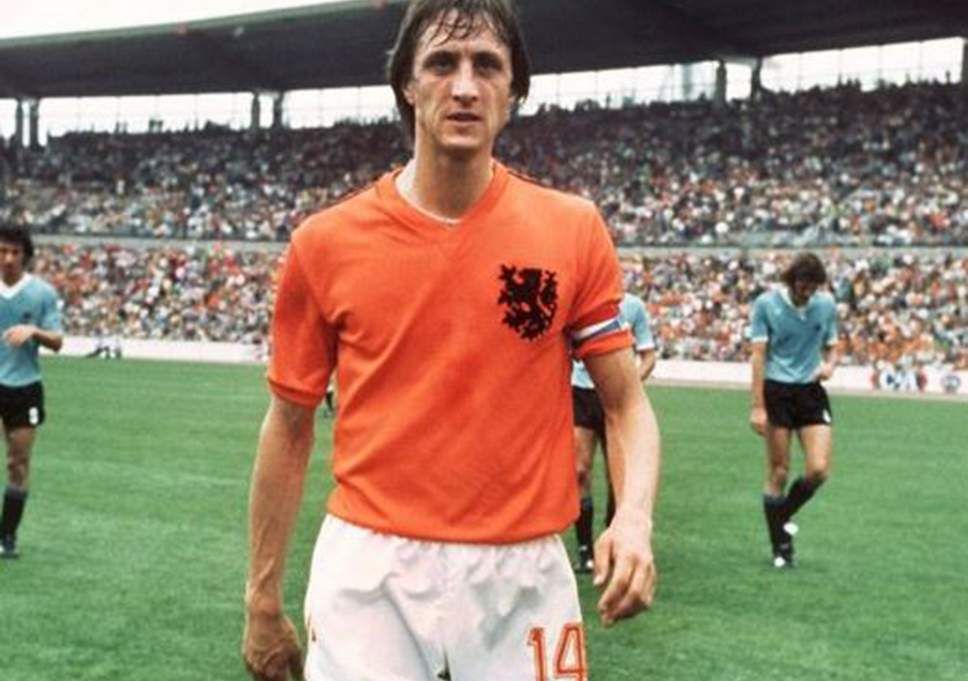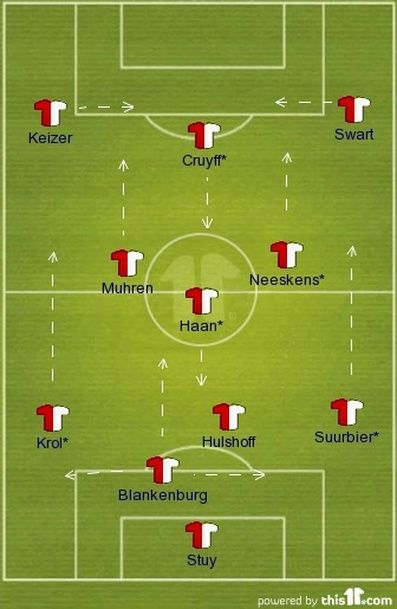Talking Tactics: Total Football
Apr 25, 2019 • 43 views
Simple football is the most beautiful. But playing simple football is the hardest thing.
-Johan Cruyff
With so many different tactics employed by managers in modern football, endlessly scribbling away formations on notepads while watching their side play, it seems that teams in the present era have phased out a very basic but unique technique, made immortal by a Dutchman in the 1970s, from their systems. With teams now focussing on having specialists in their particular positions only, as opposed to covering the field in multiple positions, there is now a dearth of players who are skilled enough to play in multiple positions. Leave your specialized position, and there’s a chance that you may not be covered by anyone else, thus putting your team in danger. Johan Cruyff’s (image below) ‘Total Football’, thus, is a concept that has been much feted, but rarely used now.

So what is total football? In simple words, it means every player, save the goalkeeper, can play any role on the pitch as required. He has to defend, he has to find spaces, and he may need to move forward; basically, do what the situation demands. This also means that the position that the player vacates will be needed to be filled by another of his teammate, so that structural solidity is maintained. This means that players have to be highly adaptive of different positions, while at the same time being aware enough as to where the gaps are. The foundations of this system were however, laid as early as in the 1920s, with Ajax being the beneficiaries of this approach under manager Jack Reynolds, an Englishman. Other than this, the English team Burnley also used a similar play style, which made them the English League champions in the 1959-60 season. The Austrian and Hungarian teams were proponents of this approach on an international level.
Enter Rinus Michels, an Ajax alumni who played under Jack Reynolds, and was made the team’s coach in 1965. He had at his disposal one of the most potent player in the world in the form of Cruyff, and together they changed the face of football, and how it’s meant to be played. Michels gave Cruyff complete freedom to move around the field, looking for gaps and spaces, a plan which gradually seeped into his teammates too. The team used to consistently exploit spaces, switching roles and terrorising opposite teams. It is no surprise then that this team oversaw eight Eredivisie (Netherlands’ top-flight) titles, along with a triplet of European Cups, and one Intercontinental Cup.

Cruyff implemented this tactic later as a coach at both Ajax and Barcelona, with great success. While also influencing modern coaches such as Sir Alex Ferguson, Arsene Wenger and Pep Guardiola, the Spanish national team’s success in the period of 2008-2012 (where they won two European titles along with the World Cup in 2010) also points to his influencing philosophy.
